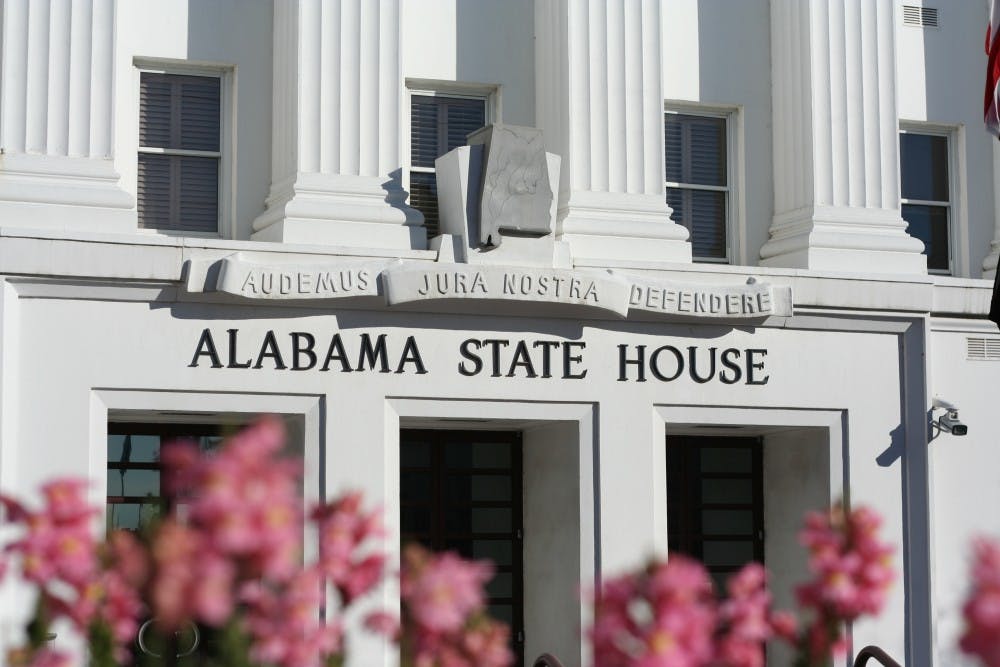On Oct. 1, Gov. Ivey signed a bill that will move forward the construction of prisons using federal Covid-19 relief funds.
The construction of the prisons is set to take place over the course of the next five years. The prisons will be built in Elmore and Escambia Counties.
Gov. Ivey convened a special session to begin Sept. 27 that resulted in the passage of a law on Oct. 1, a timeline unique compared to other special sessions. In Alabama, special sessions typically range over the course of 12 days over a 30-day span; however, this session only lasted five days over the course of a week.
Morgan Duckett, senior in industrial design, and co-founder of Alabama Students Against Prisons, noted that the scope of the session was only revealed a few days prior and the “bills were not even filed until the first night of the session, making opposition to any of the bills extremely difficult to organize, as well the intent.”
Duckett implies that Gov. Ivey is aware that many Alabamians do not wish to build new prisons:Just earlier this year, ASAP campaigned and successfully defunded efforts to build new prisons in Alabama.
Many students recognize that constructing these new prisons is not in the best interest of the state. They voiced the harms of the criminal justice system in our state and noted that these facilities worsen the health and needs of those that are incarcerated.
Others have articulated their concerns as well. The Equal Justice Initiative noted that in Alabama, "people who need medical care, help managing their disabilities, mental health and addiction treatment and suicide prevention are denied care, ignored, punished and placed in solitary confinement."
“If current trends continue, you can expect at least 200 to 300 more homicides, suicides and overdoses as a result of the systemic negligence and abuse that our department of corrections propagates," Duckett said. "And once the construction is complete, the same deliberately indifferent, homicidal, criminally negligent leadership will be in charge to see the violence continue."
EJI noted that Alabama prisons are inhumane: "[they] do not provide treatment, education or rehabilitation" and instead they escalate violence, deny treatment, escalate abuse, enrich corporations and routinely violate people's constitutional rights.
Importantly, the construction of the new prisons defies the recommendations made by the Department of Justice in their lawsuit against the state.
The Department of Justice stated that "Alabama fails to provide adequate protection from prisoner-on-prisoner violence and prisoner-on-prisoner sexual abuse, fails to provide safe and sanitary conditions, and subjects prisoners to excessive force at the hands of prison staff."
Duckett echoed what others have expressed: rather “than remedying any of the [litanies] of harms caused by the pandemic," Gov. Ivey chose to spend $400 million of federal COVID-19 relief money, a quarter of our 2.1 billion state Covid relief funds, to build two mega-prisons.
Rather than address the drastic impact that COVID-19 has had on our state, the funds are partially being allotted elsewhere.
If Gov. Ivey were truly concerned with the status of prisons, better use of funds would be to improve existing prisons and address the lawsuit charges as made by the Department of Justice.
Those facing incarceration are deserving of rehabilitation, education, menstrual products, therapy and other forms of care. Funds should be allocated to expand upon and improve the limited resources currently in place. Resources should help address the cycle of poverty and incarceration as so evident in our state.
Duckett noted that less than half of the $400 million would expand Medicaid in the state to cover over 400,000 Alabamians.
Ultimately, despite cries from students that our priorities in the criminal justice system should not be to construct new prisons, Ivey persists in her endeavor.
“Our elected officials do not legislate in the public’s interest,” Duckett said. “I’m angry that lawmakers open their offices to construction companies and prison lobbyists before ever considering the wishes of directly impacted and currently incarcerated people.”
The largely held beliefs of inherent human dignity are suddenly forgotten when discussing those within the prison system.
Do you like this story? The Plainsman doesn't accept money from tuition or student fees, and we don't charge a subscription fee. But you can donate to support The Plainsman.

Regan Moss, senior pursuing concurrent degrees in microbiology and neuroscience, is a columnist for The Plainsman.





